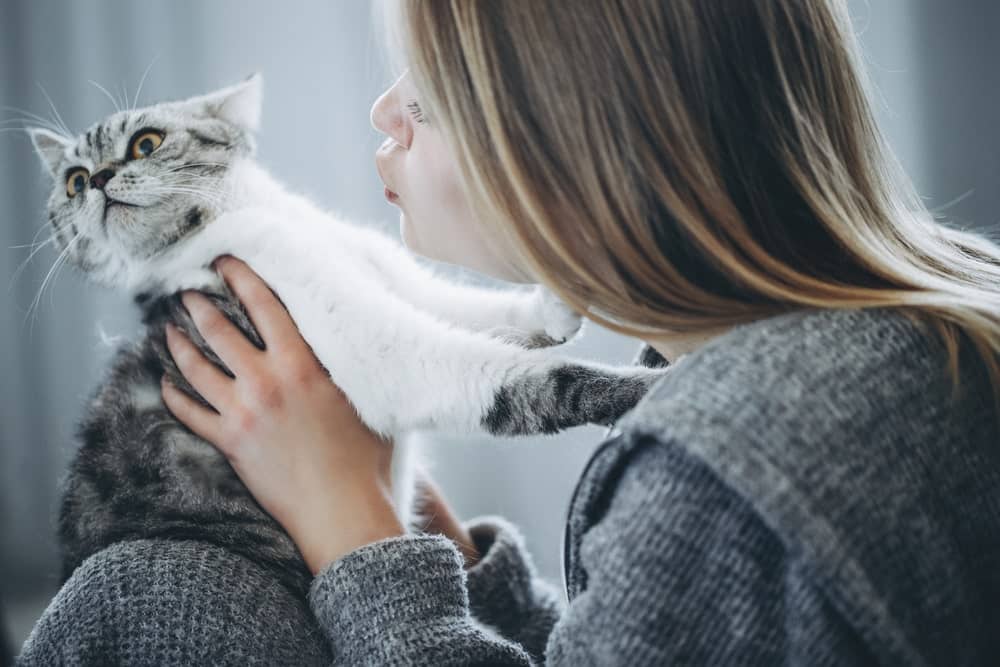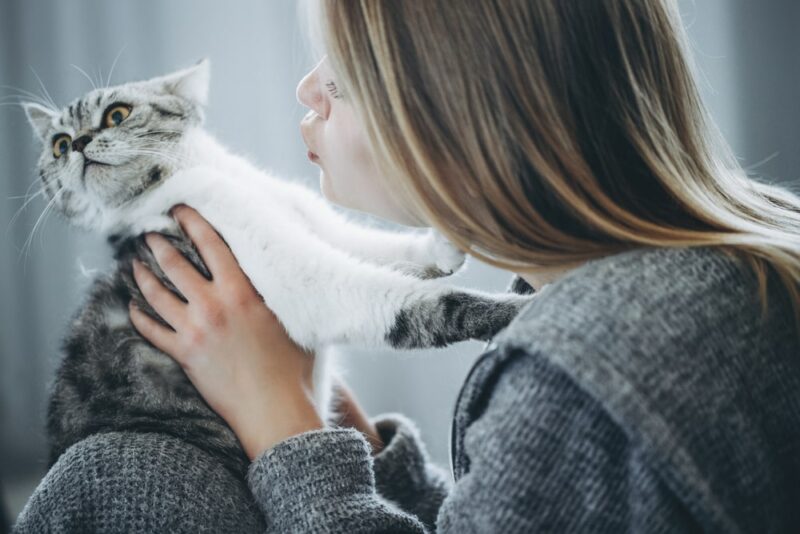Cats are known for their independent nature, and while they can be loving pets, they don’t always show it in the same ways that dogs do. But what happens when your cat seems to actively dislike you?
It’s a common question among cat owners, and it is possible that your cat may hate you but the answer is not always straightforward. Sometimes, a cat’s behavior could indicate an underlying problem, while other times, it could be due to a lack of comprehension of their body language or actions.

Understanding Cat Behavior
To understand whether your cat hates you or not, it’s important to first understand typical feline behavior. Cats are creatures of habit, and they are often most comfortable in environments that are predictable and consistent. They also have specific ways of communicating with their owners, such as purring, kneading, and meowing.
However, it’s important to note that not all cats are the same. Some cats are naturally more affectionate and enjoy being around people, while others prefer to keep to themselves. Additionally, cats can develop negative associations with people or situations if they have experienced trauma, neglect, or abuse.
How Can You Tell if Your Cat Doesn’t Like You?
If your cat is avoiding you or showing aggression, it could be a sign of an underlying problem. Some common signs that your cat may be upset or stressed include:
- Hiding or avoiding you
- Refusing to eat or drink
- Urinating or defecating outside the litter box
- Tense body
- Legs or tail help close or tightly against the body
- Overgrooming or pulling out hair
- Acting aggressively, such as hissing, scratching, or biting
If you notice any of these behaviors in your cat, it’s important to speak with your veterinarian to rule out any underlying medical issues. Once you’ve ruled out any physical problems, it’s time to take a closer look at your cat’s environment and behavior to see if there are any changes you can make to improve the situation.
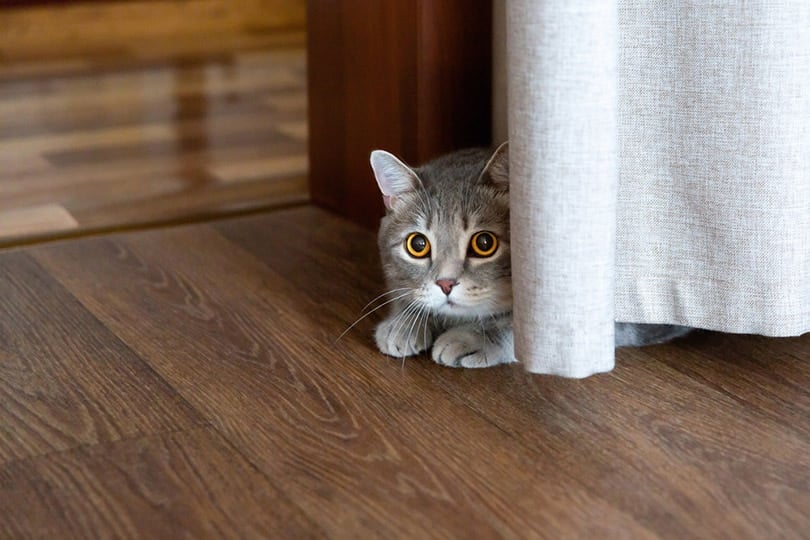

Will a Cat Forgive You?
To improve your relationship with your upset or stressed cat and make your pet feel more comfortable, there are several actions you can take. The truth is that cats are more than capable of forgiving and forgetting. Here are a few tips to get things moving in that direction:
Understand Your Cat’s Body Language
Cats communicate in a variety of ways, including body language. Understanding your cat’s body language can help you recognize when your pet is feeling stressed, anxious, or upset.
For example, if your cat’s ears are flattened against their head, it may be a sign that they are feeling threatened or upset. If their tail is twitching rapidly, it may be a sign that they are feeling agitated or annoyed.
Create a Safe and Comfortable Environment
Cats feel most comfortable in environments that are safe and predictable. Make sure your cat has a quiet space to retreat to when they need some alone time and provide plenty of toys and scratching posts to keep them entertained. It’s also important to keep your cat’s litter box clean and easily accessible.
Spend Quality Time Together
While cats are known for their independence, they still enjoy having plenty of quality time with their owners. So, make sure you give your cat lots of love and attention—play with them, pet them, and give them the best care possible.
These are excellent ways to help strengthen the bond between you and your pet and make them feel more comfortable around you.
Be Patient and Understanding
If your cat is displaying aggressive or avoidant behavior, it’s important to be patient and understanding. Remember that cats are creatures of habit, and it may take time for them to adjust to changes in their environment or routine. Avoid punishing or scolding your cat, as this can make the situation worse.
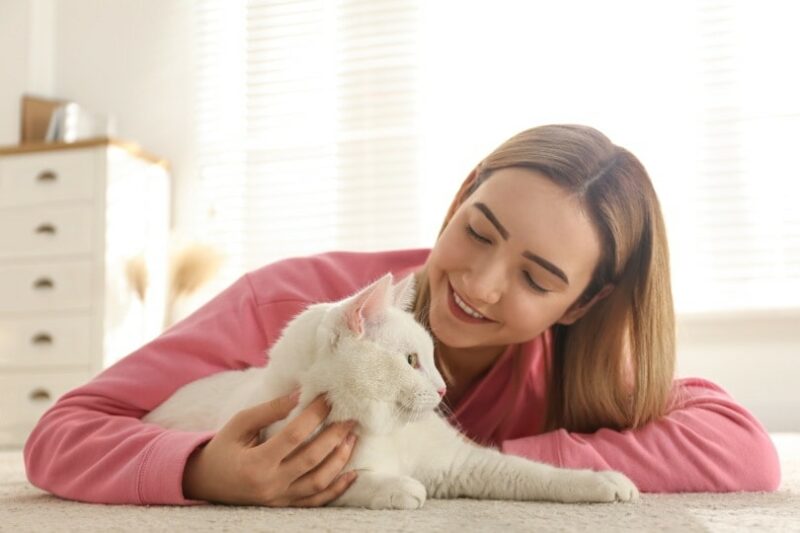

Tips for Optimal Cat Care
A healthy, safe, and happy cat is crucial for it to enjoy life at its fullest. So here are some additional tips to help you make sure your feline friend is living its best life:
Regular Veterinary Care
To make sure your cat is healthy and has received all necessary vaccinations, it’s important to take them for regular check-ups with a veterinarian. Your vet can also advise you on any preventative measures or lifestyle changes that may be beneficial for your cat’s overall health.
Proper Nutrition
A balanced diet is essential for your cat’s overall health and well-being. Ensure that your cat is receiving the right quantities of protein, vitamins, and minerals through its diet. But never give them table scraps or human food. Doing so can quickly result in an overweight and unhealthy cat.
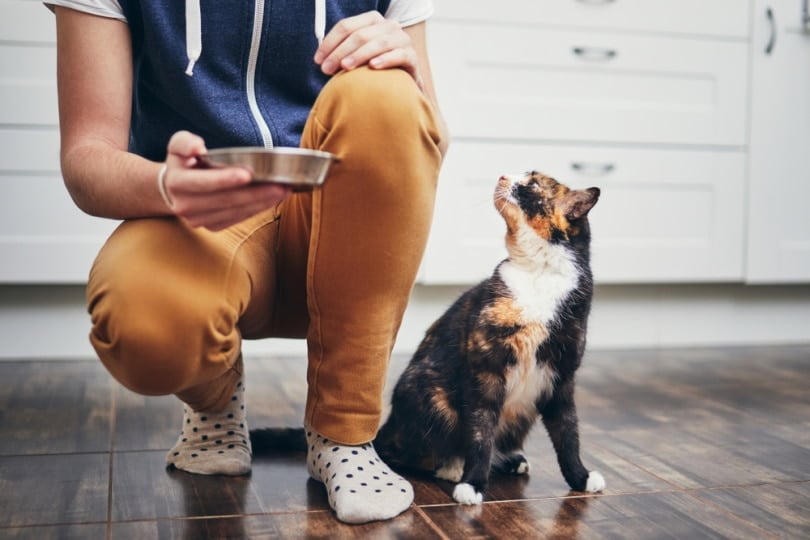
Playtime and Exercise
Cats are natural hunters and need regular exercise and playtime to stay healthy and happy. Provide your cat with toys and interactive play sessions to keep them active and mentally stimulated. A daily play session with your cat can also help strengthen your bond with your pet.
Indoor Safety
If you keep your cat indoors, make sure your home is safe and free of hazards. Keep poisonous plants and chemicals out of reach and ensure that windows and doors are secure. It’s also important to provide your cat with plenty of scratching posts and toys to prevent destructive behavior.
Litter Box Care
Regular litter box maintenance is important to keep your cat healthy and prevent litter box aversion. Clean the litter box daily and replace the litter completely every week. Make sure the litter box is in a quiet and accessible location for your cat.
If you make these tips a regular part of your cat’s life, you can look forward to a happy and healthy feline friend that loves you.


Conclusion
By taking the time to understand your cat’s behavior and needs, you can build a strong and loving bond that will last for years to come. So, if you’re worried that your cat hates you, take a step back, observe their behavior, and make the necessary changes to improve your relationship.
Featured Image Credit: Nina Buday

